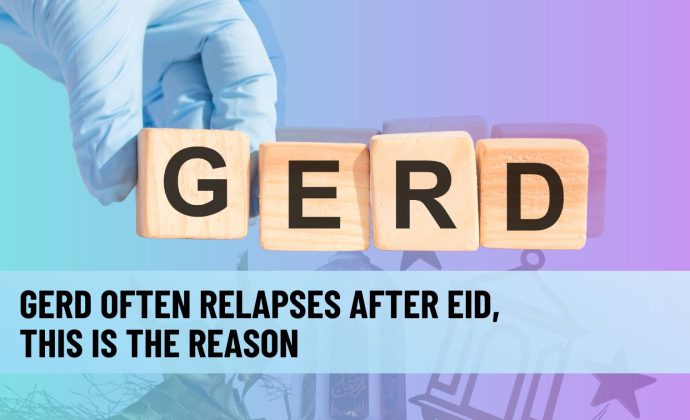
GERD OFTEN RELAPSES AFTER EID, THIS IS THE REASON
Unhealthy eating patterns can be one of the triggers for someone to experience Gastroesophageal Reflux Disease (GERD). According to these triggers, the production of stomach acid after Eid is related to changes in the ‘eating pattern’ after fasting.
During fasting, eating habits tend to be regular, both in terms of time and amount of food. However, eating patterns and menus tend to fall apart during and after Eid al-Fitr. People are addicted to eating anything from spicy food to coconut milk.
In general, people eat a variety of typical Eid food menus such as ketupat, chicken opor, meat stew, potato sauce, and other sweet pastries. There are some foods that people with GERD should avoid so that their symptoms do not recur.
People with GERD should also avoid consuming too much meat. It is because meat tends to be high in cholesterol and fatty acids. Several other types of consumption can also cause acid disorders, such as salty foods, chocolate, fizzy drinks, caffeinated drinks, and sour foods.
Apart from the type of food, several factors contribute to the development of GERD after Eid. Heartburn can occur when someone overeats.
It is better to stay wise in consuming typical Eid food by limiting food portions. It is in line with the message of Prof. Ari Fahrial Syam, MD, MMB, Ph.D., FACP, FACG, gastroenterohepatology consultant, so you don’t get ‘hungry for your eyes’ and try all the menus served during Eid. Prof. Ari also advised us to eat fruit and vegetables in every meal during Eid.
Source:
Ini Alasan GERD Kerap Muncul Setelah Lebaran | Konteks
Catat, Ini Daftar Makanan Saat Lebaran yang Jadi Biang Penyakit (detik.com)
Image source:
Getty images
Banggarasanya





 Users Today : 317
Users Today : 317 Total views : 2233517
Total views : 2233517 Who's Online : 4
Who's Online : 4